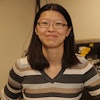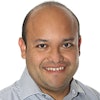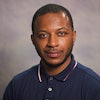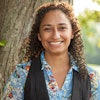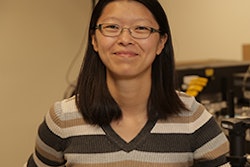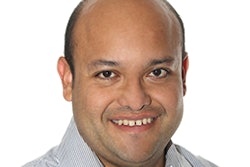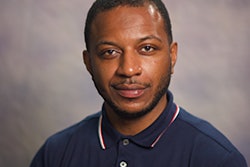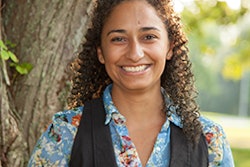George Washington University (GWU) School of Nursing recently released a doctoral program in which the school’s assistant professor in health disparities and oncology, Dr. Daisy Le, will fi gure prominently. Although not a nurse, Le’s in-depth research in health equity and healthcare disparities as well as her extensive community-based work make her of crucial importance to dean Dr. Pamela Jeff ries’ transdisciplinary research vision.
“Daisy’s work can expand not only across the School of Nursing, but also the School of Public Health, School of Medicine and the health sciences,” says Jeffries. “In this day and age, we need to be collaborative as we look for increasing and contributing to the science of our profession as well as all health professions.”
Health inequity has impacted Le on a personal level. The daughter of Vietnamese refugees, Le grew up in the Tenderloin District in San Francisco, which was replete with crime and poverty during her childhood. Her parents spoke little English and didn’t know how to access social and health services.
“Seeing what my parents did not have access to is actually what drove me to want to do something about it through learning about it in school and eventually in practice,” says Le.
As an undergraduate at the University of California, Los Angeles (UCLA), she double majored in sociology and Asian American studies with an emphasis on public health.
Those areas gave her a comprehensive understanding of the socio-cultural determinants of health. “There are social and cultural factors that can influence health,” says Le. “Having the social science background gave me the theoretical methods and approaches that I really needed to be able to productively apply it to enhance my study in health equity. I wanted to give a voice to those who were underserved or oppressed.”
Le earned two master’s degrees at UCLA in public health and Asian American studies. She then earned her doctorate at University of Maryland, College Park. Before, during and aft er her doctoral studies, Le has involved herself in community engagement work.
“For me, that’s very important in order to make actual change in various populations,” Le says. “My dissertation topic came from the community I was working in already.”
She was working in a church-based setting in the African American community. Her dissertation research, CervixCheck, was a spiritually-based, text messaging pilot program intended to increase cervical cancer awareness and Pap test screening for African American women.
As a postdoctoral fellow at Johns Hopkins University, Le worked on a National Cancer Institute-funded project in which she researched e-cigarette use among young adults in East Baltimore. She currently focuses on health communication strategies, using mobile health technology to understand and address the socio-cultural determinants of health, especially in underserved populations.
“We need to reach the population where they actually are,” says Le. “In order to reach them, it requires us to think outside of the box. That’s why innovative methods to reach them are so important.”
Le says she hopes innovative approaches will lead to more personalized healthcare designed to meet the needs of individuals.
“We’re talking about effective health encounters as opposed to just encounters in general,” says Le. “Innovation allows us to look at how certain populations receive the information we provide, how they actually understand it and hopefully…then do something about their health and be proactive about it.”
At GWU, Lee will mostly work with graduate students teaching about public health issues and inequities. Part of her role will include taking students into the field.
“It’s exposing them to it, giving them real life examples,” she says. “Also, finding time for us to reflect together. Debriefing at team meetings. Making sure we emphasize the theme throughout everything.”
Jeffries anticipates that Le’s work will impact healthcare policy. “Daisy’s work can help to elevate the voice and awareness in advocacy for many of these health inequities,” says Jeffries. “She will also help nurses have voices to influence policy.”
Title: Assistant Professor in Health Disparities and Oncology, George Washington University School of Nursing, Department of Policy, Populations & Systems
Education: Bachelor’s degree, Sociology and Asian American Studies, UCLA; Master’s Degree in Community Health Science and Asian American Studies, UCLA; Ph.D., Behavioral and Community Health, University of Maryland
Age: 34
Career mentors: Dr. Marjorie Kagawa-Singer, UCLA; Dr. Cheryl L. Holt, University of Maryland
Words of wisdom/advice for new faculty members: “Recognize what your limits are and be OK with it. Set priorities and reasonable goals to achieve.”

